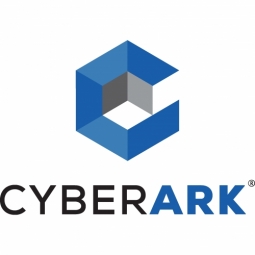Download PDF
US Insurance Firm Bolsters Security and Compliance with CyberArk
Technology Category
- Cybersecurity & Privacy - Security Compliance
Applicable Industries
- Finance & Insurance
- National Security & Defense
Applicable Functions
- Quality Assurance
Use Cases
- Cybersecurity
- Usage-Based Insurance
Services
- Cybersecurity Services
The Challenge
Federated Insurance, a national insurance business based in Owatonna, Minnesota, was facing challenges in managing cybersecurity risks, particularly in the area of privileged access management and identity protection. The company was aware of the growing threat of cyberattacks, especially for organizations in the financial sector. A few years ago, the company reviewed its cybersecurity capability and realized that it could be improved. The company found that most passwords were written down somewhere or linked to user IDs, which posed a significant security risk. The company wanted to make privileged accounts easier to manage so people did not have to keep remembering long passwords or write them down. Additionally, the company was aware that regulations and insurance standards around cybersecurity were getting tougher, so it needed more robust privileged access and identity protection.
About The Customer
Federated Insurance is a national insurance company based in Owatonna, Minnesota. The company operates in 49 states and the District of Columbia, providing American businesses with customized property and casualty insurance; umbrella and life and disability income; bonding; surety; and workers compensation coverage. The company is rated A+ (Superior) by A.M. Best Company® and has been named in Ward’s 50 group of top performing insurance companies (2022). The company has total assets of USD$10.5 Billion and employs 2,800 people. Federated Insurance runs an in-house IT department with around 350 employees who support everything covering infrastructure, business users and applications.
The Solution
Federated Insurance decided to partner with CyberArk to improve its cybersecurity capabilities. The company set up a cross-functional team to investigate privileged access management and run proof of concepts with several different vendors. The company chose CyberArk due to its ease of use and administration, and its position as a market leader in the field. Federated Insurance is using the CyberArk Identity Security platform comprising CyberArk Privileged Access Manager as a self-hosted deployment. The company's in-house IT department, which consists of around 350 employees, now uses Privileged Access Manager for their server administration and privileged accounts. To help with adoption, the company appointed CyberArk champions throughout the organization during deployment to communicate the importance of securing privileged access. The company also uses CyberArk to protect critical business and client data, including Personally Identifiable Information (PII).
Operational Impact
Quantitative Benefit
Related Case Studies.

Case Study
Real-time In-vehicle Monitoring
The telematic solution provides this vital premium-adjusting information. The solution also helps detect and deter vehicle or trailer theft – as soon as a theft occurs, monitoring personnel can alert the appropriate authorities, providing an exact location.“With more and more insurance companies and major fleet operators interested in monitoring driver behaviour on the grounds of road safety, efficient logistics and costs, the market for this type of device and associated e-business services is growing rapidly within Italy and the rest of Europe,” says Franco.“The insurance companies are especially interested in the pay-per-use and pay-as-you-drive applications while other organisations employ the technology for road user charging.”“One million vehicles in Italy currently carry such devices and forecasts indicate that the European market will increase tenfold by 2014.However, for our technology to work effectively, we needed a highly reliable wireless data network to carry the information between the vehicles and monitoring stations.”

Case Study
Safety First with Folksam
The competitiveness of the car insurance market is driving UBI growth as a means for insurance companies to differentiate their customer propositions as well as improving operational efficiency. An insurance model - usage-based insurance ("UBI") - offers possibilities for insurers to do more efficient market segmentation and accurate risk assessment and pricing. Insurers require an IoT solution for the purpose of data collection and performance analysis

Case Study
Data Capture for Afghanistan Forces
Electronic equipments on the field of Afghanistan provided information on the status of the vehicle and to identify potential threats surrounding it to the British Force. The monitoring and interpretation of this data requires robust and sophisticated digitization for data capture and communication.

Case Study
Smooth Transition to Energy Savings
The building was equipped with four end-of-life Trane water cooled chillers, located in the basement. Johnson Controls installed four York water cooled centrifugal chillers with unit mounted variable speed drives and a total installed cooling capacity of 6,8 MW. Each chiller has a capacity of 1,6 MW (variable to 1.9MW depending upon condenser water temperatures). Johnson Controls needed to design the equipment in such way that it would fit the dimensional constraints of the existing plant area and plant access route but also the specific performance requirements of the client. Morgan Stanley required the chiller plant to match the building load profile, turn down to match the low load requirement when needed and provide an improvement in the Energy Efficiency Ratio across the entire operating range. Other requirements were a reduction in the chiller noise level to improve the working environment in the plant room and a wide operating envelope coupled with intelligent controls to allow possible variation in both flow rate and temperature. The latter was needed to leverage increased capacity from a reduced number of machines during the different installation phases and allow future enhancement to a variable primary flow system.

Case Study
Automated Pallet Labeling Solution for SPR Packaging
SPR Packaging, an American supplier of packaging solutions, was in search of an automated pallet labeling solution that could meet their immediate and future needs. They aimed to equip their lines with automatic printer applicators, but also required a solution that could interface with their accounting software. The challenge was to find a system that could read a 2D code on pallets at the stretch wrapper, track the pallet, and flag any pallets with unread barcodes for inspection. The pallets could be single or double stacked, and the system needed to be able to differentiate between the two. SPR Packaging sought a system integrator with extensive experience in advanced printing and tracking solutions to provide a complete traceability system.

Case Study
Transforming insurance pricing while improving driver safety
The Internet of Things (IoT) is revolutionizing the car insurance industry on a scale not seen since the introduction of the car itself. For decades, premiums have been calculated using proxy-based risk assessment models and historical data. Today, a growing number of innovative companies such as Quebec-based Industrielle Alliance are moving to usage-based insurance (UBI) models, driven by the advancement of telematics technologies and smart tracking devices.





